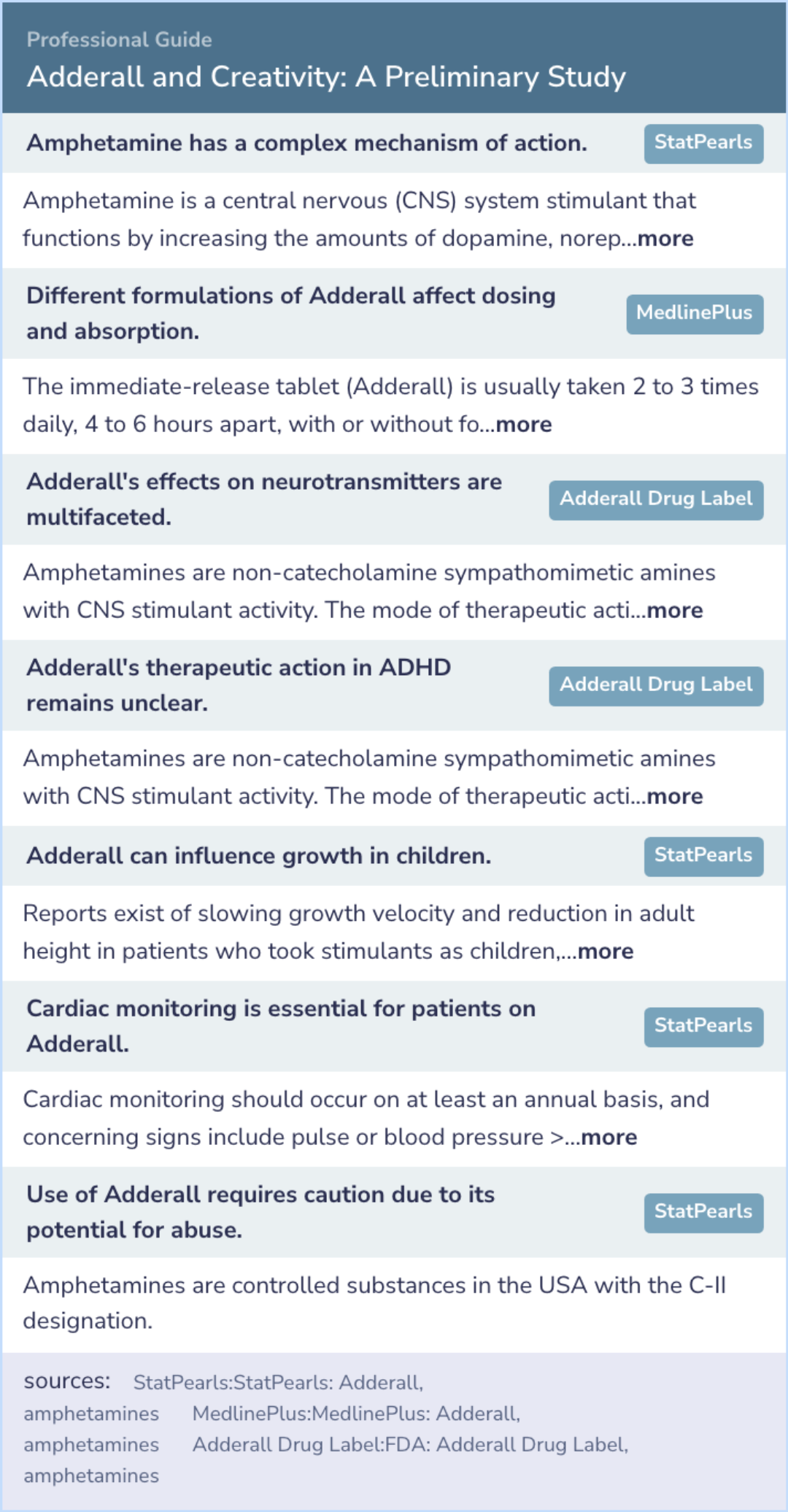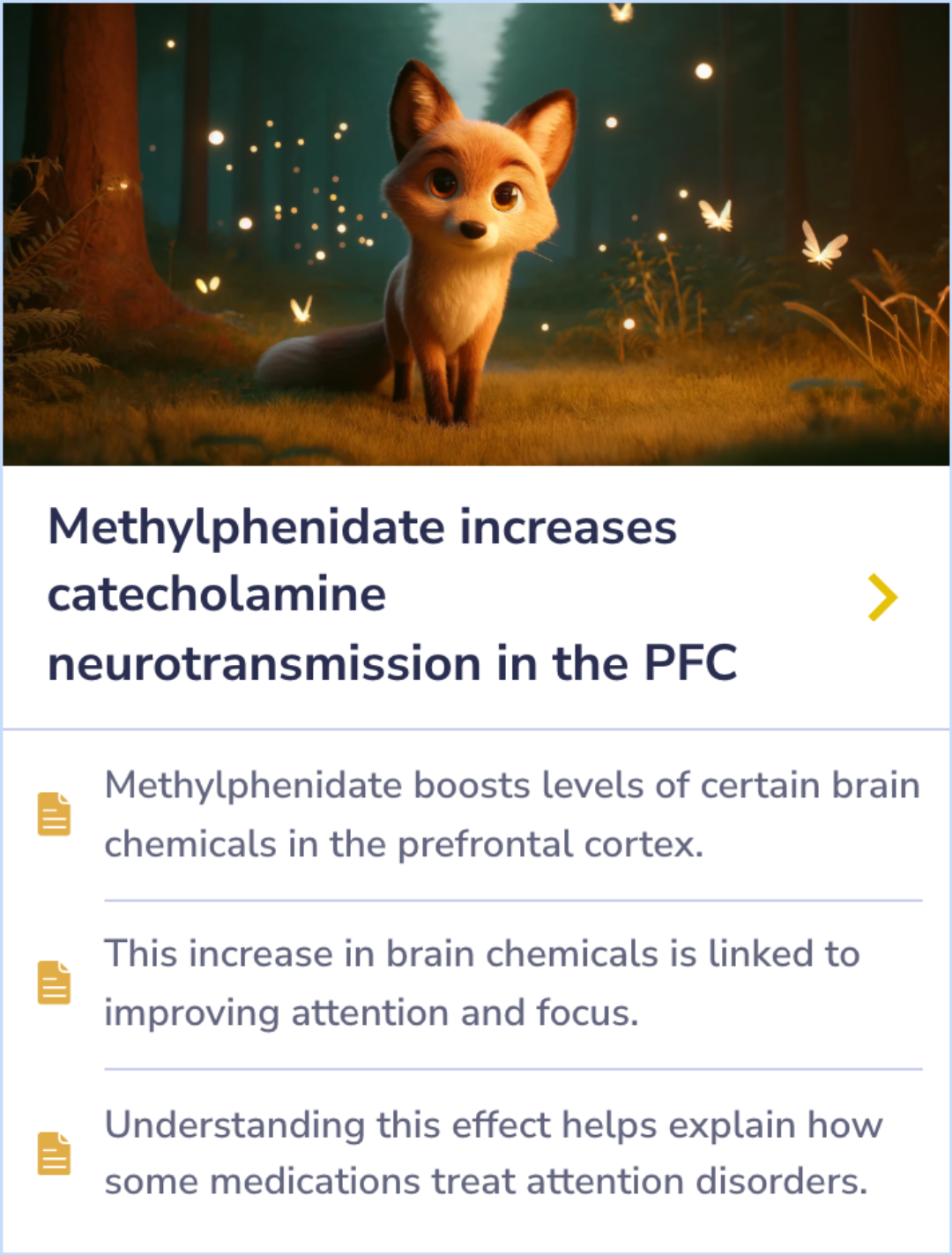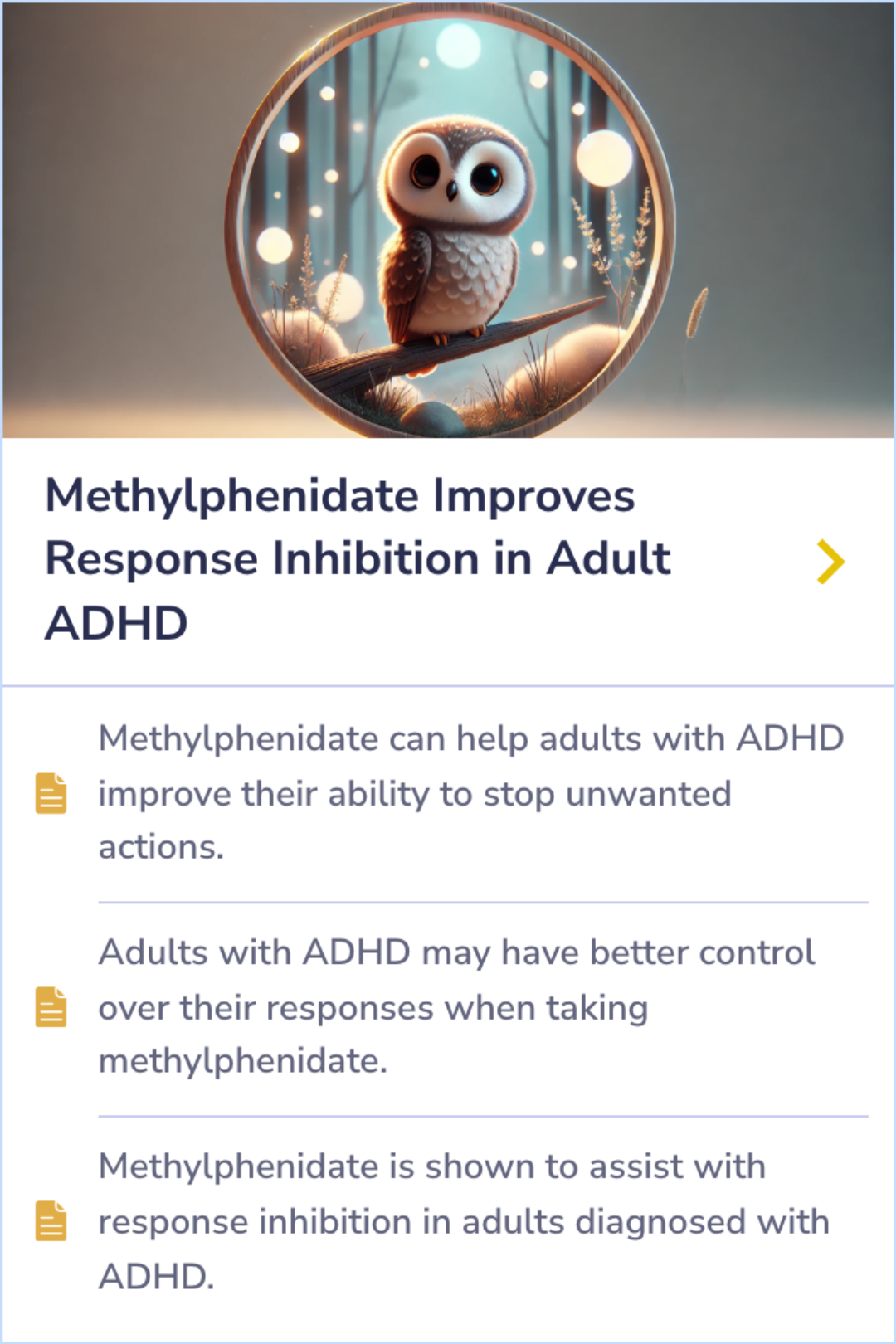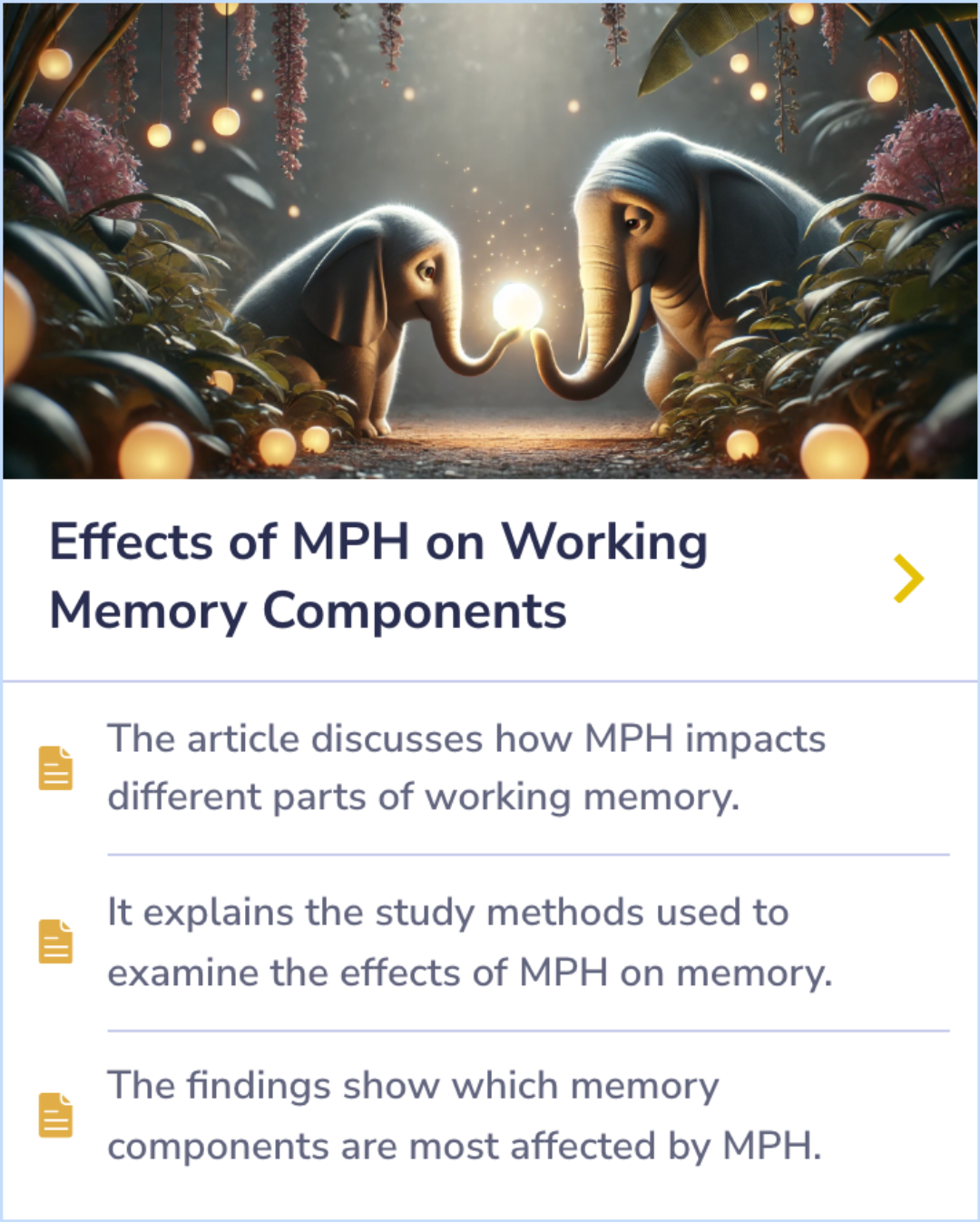Adderall Study Database
Visual Abstract
When we enhance cognition with Adderall, do we sacrifice creativity? A preliminary study
Adderall (Mixed Amphetamine Salts) Enhances Creativity for Some, Impairs for Others
October 17, 2024
author
Farah MJ, Haimm C, Sankoorikal G, Smith ME, Chatterjee A
journal
Psychopharmacology
Date Published
2009-01
Why link to a visual abstract?
What is a visual abstract?
Original
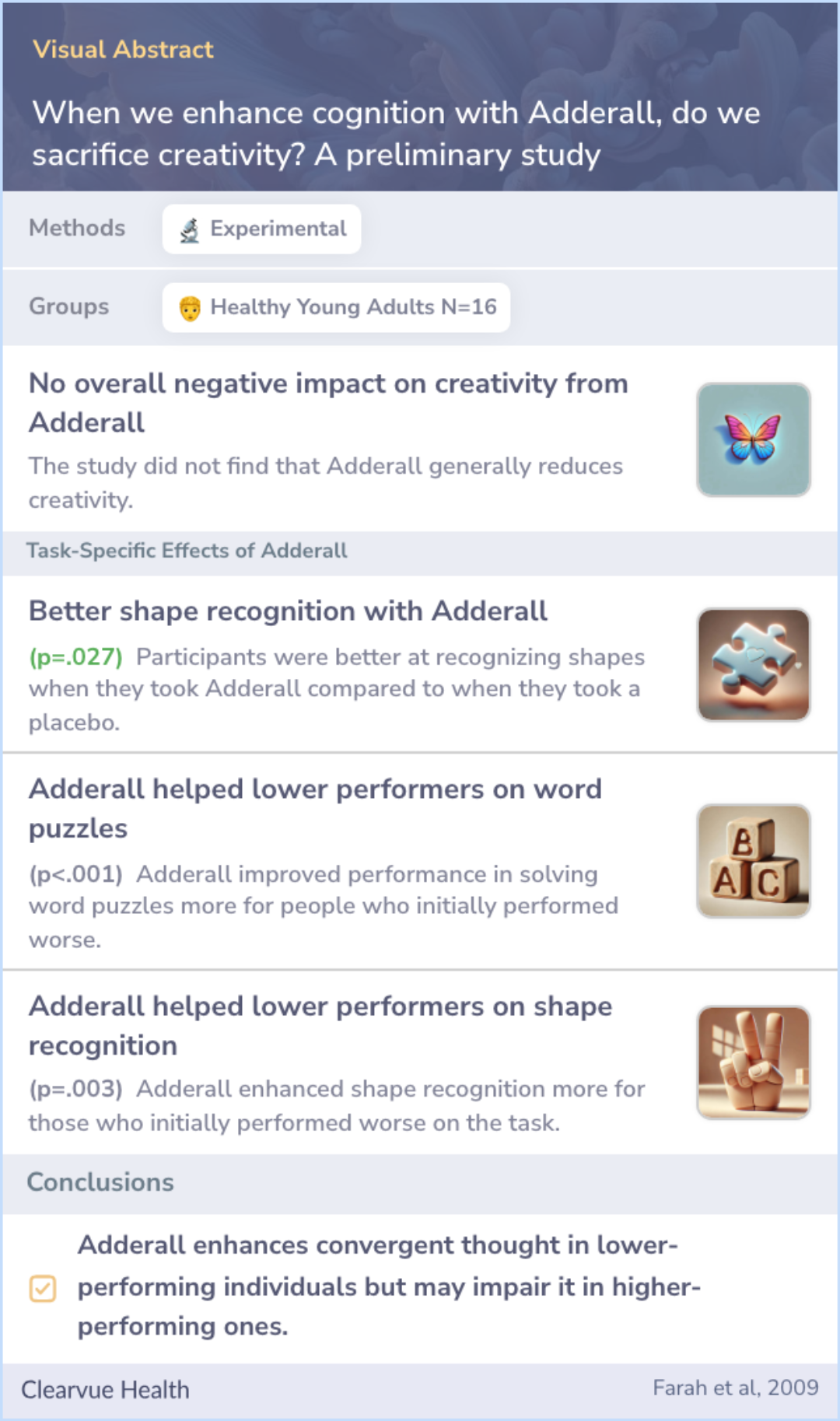
Study Summary
🔬
What They Studied
The researchers aimed to discover if Adderall impairs creativity in healthy young adults.
💡
What They Found
The study found that Adderall's effect on creativity varies, enhancing convergent thought in lower-performing individuals but sometimes impairing it in higher-performing ones.
📚
What This Means
These findings suggest that while Adderall may not have a universal negative impact on creativity, its effects on convergent creative thought differ based on the individual's baseline creativity, aligning with the notion of CNS stimulants impacting neurotransmitter reuptake.
Study Summary
Study Overview
Many healthy people use stimulant medications like Adderall to boost their thinking skills.
Research indicates that using Adderall for cognitive enhancement does not always harm creativity.
However, while it might help certain abilities, it could also hinder creative thinking in others.
Research indicates that using Adderall for cognitive enhancement does not always harm creativity.
However, while it might help certain abilities, it could also hinder creative thinking in others.
Abstract: background
This study was designed to find out whether Adderall impairs creativity in healthy young adults.

Cognitive Enhancement and Creativity
"The past decade has seen a rise in the use of prescription stimulants by normal healthy individuals for cognitive enhancement."
Implications for Society
"If cognitive enhancement continues to be more widely practiced and does decrease creativity, the effect on society as a whole could be grave."
Effects of Stimulants
"The findings of reliable enhancement effects of Adderall in one task and ability-dependent effects in another task tell us that the answer to the title question is not a simple 'yes'."
Study Summary
Methods
The study utilized a double-blind placebo-controlled design, which means that neither the participants nor the researchers knew who was receiving Adderall and who was receiving a placebo, to ensure unbiased results. Sixteen healthy young adults participated, undergoing a series of four creativity tests derived from established psychological frameworks. Of these, two tests evaluated divergent thinking, which involves generating multiple solutions to a problem, while the other two focused on convergent thinking, aimed at finding a single, correct solution. This balanced approach helped in assessing the full spectrum of creative thinking under the influence of the medication.
By dividing tasks into these two categories, the researchers could determine more precisely how Adderall's effects might vary between different types of creative processes. By controlling for expectations and preconceptions through the study's design, the findings gained robustness and relevance.
By dividing tasks into these two categories, the researchers could determine more precisely how Adderall's effects might vary between different types of creative processes. By controlling for expectations and preconceptions through the study's design, the findings gained robustness and relevance.
Abstract: methods
In a double-blind placebo-controlled study, the effects of Adderall on the performance of 16 healthy young adults were measured on four tests of creativity from the psychological literature: two tasks requiring divergent thought and two requiring con...more

Study Summary
Results
The study found that Adderall had an effect on tasks that required convergent thinking, with mixed outcomes. For some participants, especially those who initially performed lower on the tests, Adderall seemed to enhance their performance. Interestingly, for participants who were initially high performers, the drug sometimes impaired their ability to think convergently. In contrast, tasks necessitating divergent thinking showed no consistent effect from the drug.
These results suggest that Adderall does not uniformly impede creative thinking but has nuanced effects depending on one’s baseline creativity level. The medication’s influence varies, possibly benefiting those who initially struggle with convergent tasks, yet potentially disrupting the process for naturally gifted individuals in this domain.
These results suggest that Adderall does not uniformly impede creative thinking but has nuanced effects depending on one’s baseline creativity level. The medication’s influence varies, possibly benefiting those who initially struggle with convergent tasks, yet potentially disrupting the process for naturally gifted individuals in this domain.
Abstract: results
Adderall affected performance on the convergent tasks only, in one case enhancing it, particularly for lower-performing individuals, and in the other case enhancing it for the lower-performing and impairing it for higher-performing individuals.

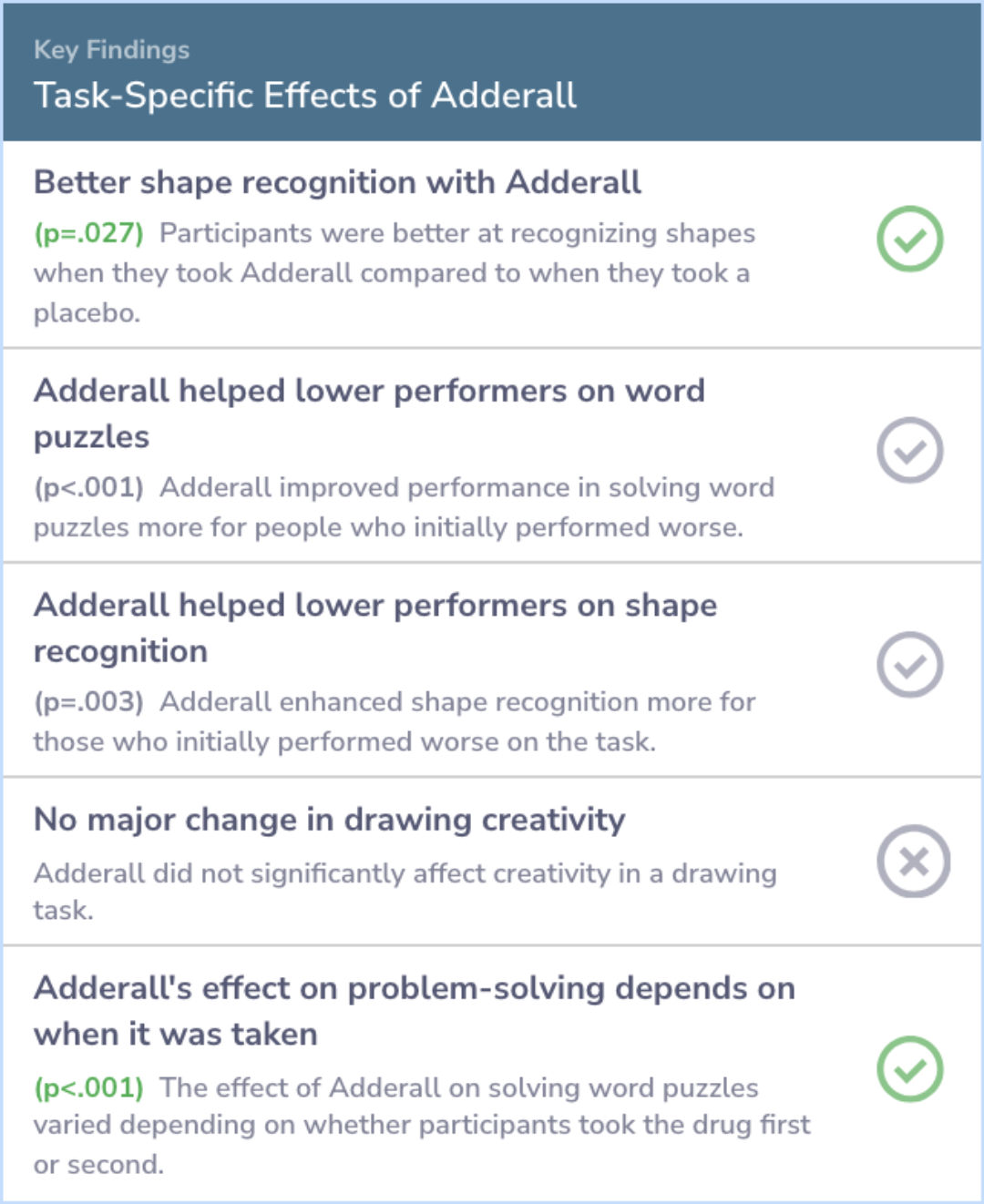
Study Summary
Conclusions
The findings offer preliminary insights that challenge the notion that Adderall universally stifles creativity. Instead, its impact appears to be more intricate, especially concerning convergent thought processes. For individuals who are lower-performing in such settings, Adderall might enhance their abilities; however, for those already proficient, it could prove detrimental.
Divergent thinking, which involves brainstorming and creativity in an open-ended manner, showed no significant change, illustrating a distinct boundary in the medication's effect. Given these mixed results, the broader implications for everyday use, especially without medical need, call for cautious interpretation and further research. More studies could help determine how Adderall can be used effectively without impacting the natural creative abilities of individuals.
Divergent thinking, which involves brainstorming and creativity in an open-ended manner, showed no significant change, illustrating a distinct boundary in the medication's effect. Given these mixed results, the broader implications for everyday use, especially without medical need, call for cautious interpretation and further research. More studies could help determine how Adderall can be used effectively without impacting the natural creative abilities of individuals.
Abstract: conclusions
The preliminary evidence is inconsistent with the hypothesis that Adderall has an overall negative effect on creativity. Its effects on divergent creative thought cannot be inferred with confidence from this study because of the ambiguity of null res...more
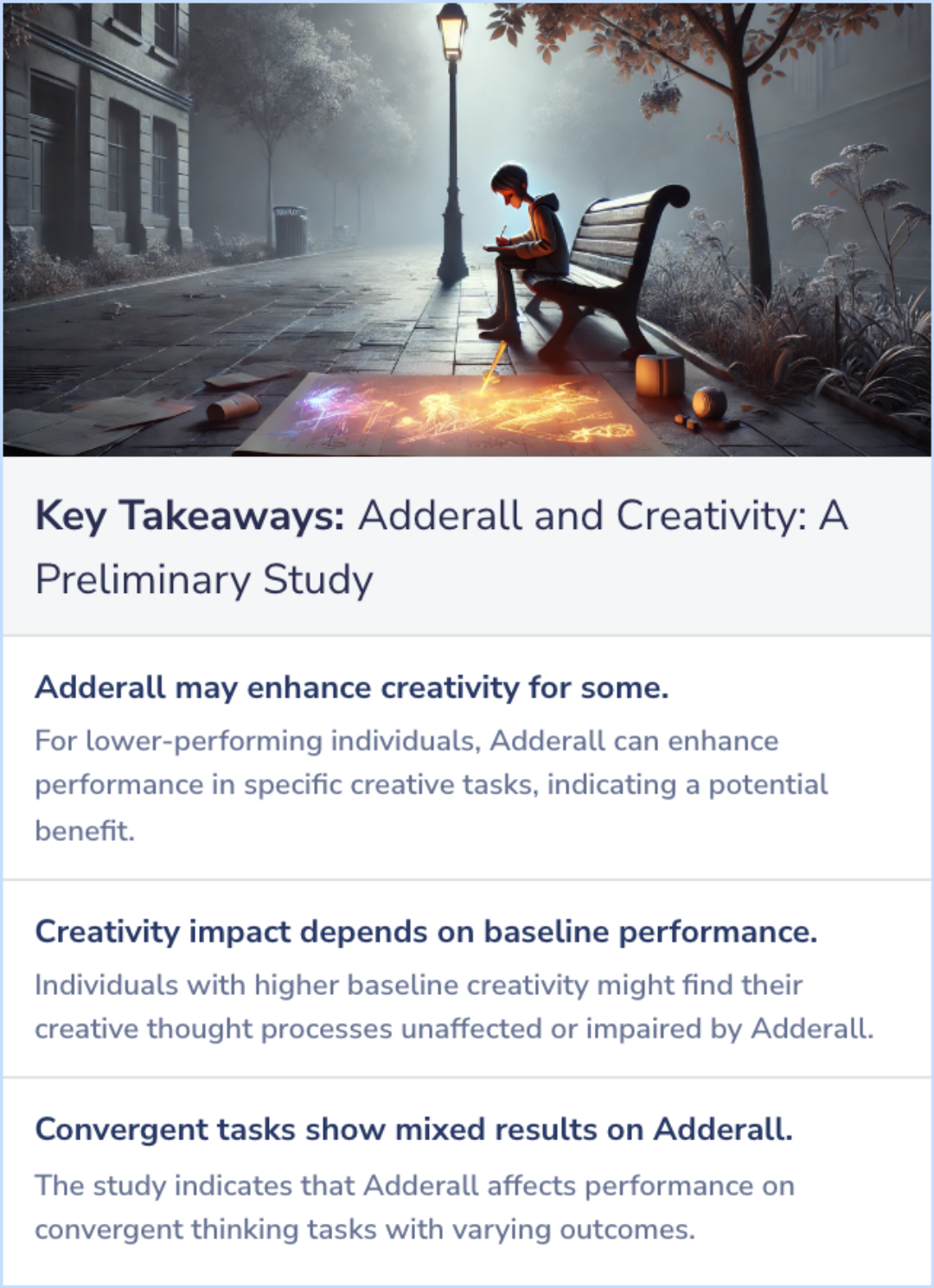
Background Information
Patient Guide
🧬
Adderall's Mechanism in the Brain
Adderall boosts dopamine and norepinephrine, enhancing CNS activity. This relates to potential changes in cognitive function.
💊
Adderall Beyond ADHD
While primarily for ADHD, Adderall usage extends to narcolepsy and potentially cognitive enhancement in healthy adults.
🧠
Potential for Long-Term Changes
Chronic Adderall use might alter brain chemistry, influencing long-term creative and cognitive functions.
🎭
Diverse Effects on Performance
Adderall's impact may vary, enhancing or impairing certain functions, and is often dose-dependent.
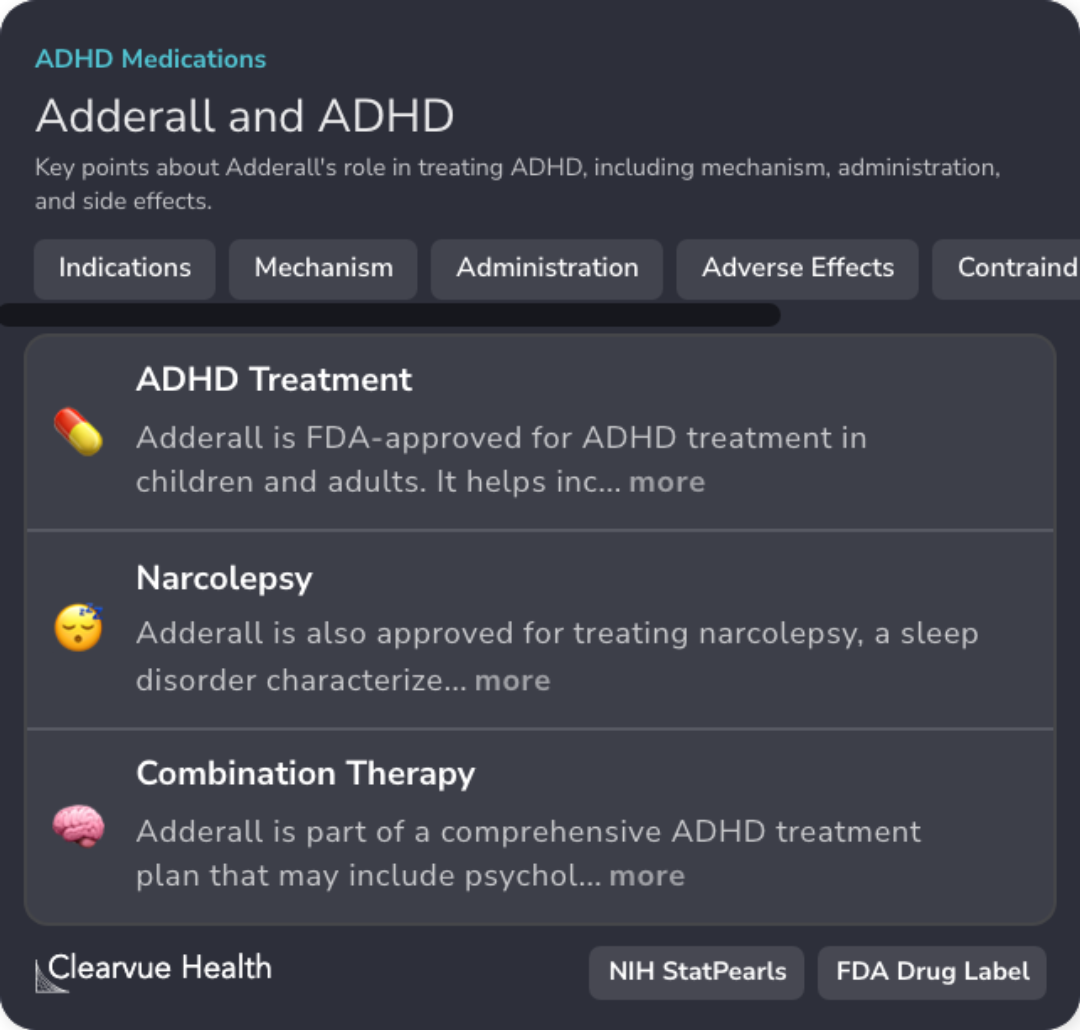
Professional Guide
Expert Opinion: Adderall and Creativity: A Preliminary Study
The observation that Adderall affects divergent and convergent thought aligns with the complex mechanisms of action of amphetamines. These central nervous system stimulants increase dopamine, norepinephrine, and serotonin in the synaptic cleft.
Among the therapeutic considerations, cardiac monitoring is vital at least annually, as abnormal pulse or blood pressure readings present concerning symptoms.
Adderall's potential impact on growth underscores the need for judicious use in children, given reports of reduced adult height among long-term users.
Furthermore, long-term treatment with Adderall requires regular evaluation of its efficacy, considering its classification as a C-II controlled substance due to abuse potential.
Among the therapeutic considerations, cardiac monitoring is vital at least annually, as abnormal pulse or blood pressure readings present concerning symptoms.
Adderall's potential impact on growth underscores the need for judicious use in children, given reports of reduced adult height among long-term users.
Furthermore, long-term treatment with Adderall requires regular evaluation of its efficacy, considering its classification as a C-II controlled substance due to abuse potential.
Evidence Summary
Methylphenidate's Role in Focus Enhancement
Methylphenidate boosts brain chemicals in the prefrontal cortex, enhancing attention and focus. This effect relates to its role in treating attention disorders, offering insight into its medication efficacy. The interactions between attention and creativity within contexts change perceptions of cognitive enhancements. Observations drawn here link directly to broader discussions concerning medication like Adderall, especially in cognitive performance.
Evidence Summary
Methylphenidate: Boosting Impulse Control in ADHD Adults
Methylphenidate helps adults with ADHD manage impulsivity, leading to better control over their actions. This medication offers improvement in response management, providing adults the ability to inhibit unwanted actions more effectively.
Adults using methylphenidate experience enhanced response inhibition, giving them a better grasp on managing impulsive behaviors related to ADHD.
Adults using methylphenidate experience enhanced response inhibition, giving them a better grasp on managing impulsive behaviors related to ADHD.
Evidence Summary
Exploring Varied Effects on Cognitive Performance
Engaging with the central theme of how certain substances affect thinking, this section dives into the specifics. It suggests examining direct metrics, comparing performances across various groups.
Highlighting variations in cognitive tasks, it demonstrates how one group's outcome unexpectedly differed from another, reflecting diverse effects on different individuals.
Highlighting variations in cognitive tasks, it demonstrates how one group's outcome unexpectedly differed from another, reflecting diverse effects on different individuals.
